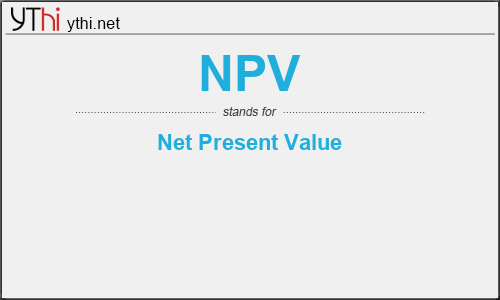What does NPV mean? What is the full form of NPV?
The full form of NPV is Net Present Value.
In finance, the net present value (NPV) or net present worth (NPW) applies to a series of cash flows occurring at different times. The present value of a cash flow depends on the interval of time between now and the cash flow. It also depends on the discount rate. NPV accounts for the time value of money. It provides a method for evaluating and comparing capital projects or financial products with cash flows spread over time, as in loans, investments, payouts from insurance contracts plus many other applications.
Net present value (NPV) is the difference between the present value of cash inflows and the present value of cash outflows over a period of time. NPV is used in capital budgeting and investment planning to analyze the profitability of a projected investment or project.
A positive net present value indicates that the projected earnings generated by a project or investment – in present dollars – exceeds the anticipated costs, also in present dollars. It is assumed that an investment with a positive NPV will be profitable, and an investment with a negative NPV will result in a net loss. This concept is the basis for the Net Present Value Rule, which dictates that only investments with positive NPV values should be considered.
NPV
means
Net Present Value![]()
Translate Net Present Value to other language.


Leave a Reply
You must be logged in to post a comment.